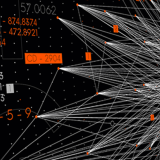EU context
Factorii de decizie politică trebuie să dobândească cunoștințe care să contribuie la abordarea chestiunilor referitoare la reglementarea eficientă, la modalitatea de asigurare a protecției sociale în sensul cel mai larg și la echilibrarea cererilor companiilor, ale societăților și ale indivizilor în ceea ce privește exploatarea potențialului mare al digitalizării.
Comisia Europeană a adoptat strategia privind piața unică digitală pentru Europa în 2015, subliniind că reprezintă una dintre principalele sale priorități. Strategia poate crea oportunități digitale pentru cetățeni și companii și are obiectivul de a consolida poziția UE ca lider mondial în economia digitală. Ea vizează sporirea accesului la informații, crearea de locuri de muncă pentru cei cu aptitudinile digitale potrivite și transformarea serviciilor publice. Întrucât economia colaborativă se răspândește la nivelul UE, Comisia urmărește încurajarea dezvoltării de servicii noi și inovatoare, asigurând în același timp măsurile de protecție adecvate. Comunicarea Comisiei din 2016 privind agenda europeană pentru economia colaborativă clarifică normele și recomandările de politici în acest domeniu pentru cetățeni, companii și statele membre.
Activitatea Eurofound
Eurofound analizează implicațiile tot mai extinse privind condițiile de muncă, reglementarea munciiși, dincolo de importanța crescândă și de domeniul de aplicare al tehnologiilor digitale, privind piața muncii.
Se analizează impactul asupra ocupării forței de muncă al tehnologiilor revoluționare în domeniul serviciilor. De asemenea, Eurofound examinează implicațiile pe care le are economia bazată pe platforme, în special ocuparea forței de muncă prin intermediul platformelor online (crowd employment), asupra pieței muncii. În plus, continuă cercetările privind condițiile de muncă și de încadrare în muncă ale lucrătorilor mobili în domeniul TIC.
Va fi examinată natura muncii și a ocupării forței de muncă în era digitală, cu accent pe:
Principalele contribuții
Un raport comun cu Organizația Internațională a Muncii (OIM) privind munca la orice oră și din orice loc a analizat impactul muncii la distanță și al muncii mobile în domeniul TIC asupra anumitor elemente ale condițiilor de muncă.
Seria de seminarii ale fundației Eurofound (FSS) reprezintă o oportunitate pentru guverne, sindicate și angajatori de a discuta dezvoltarea politicilor sociale, de ocupare a forței de muncă și a celor legate de muncă ale UE. În 2016, FSS s-a concentrat pe impactul digitalizării asupra muncii și pe elaborarea unor agende naționale pentru o mai bună implementare a modificărilor digitale.































